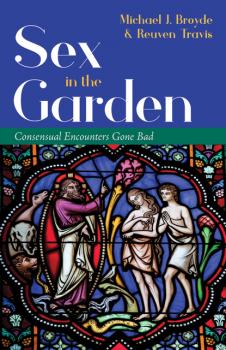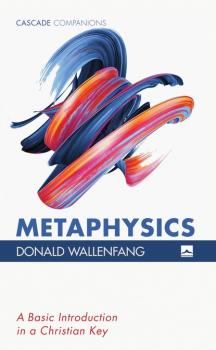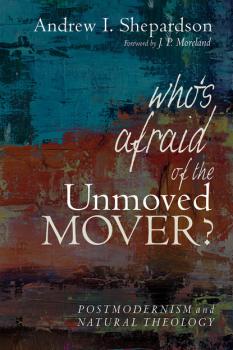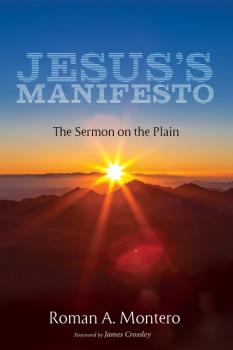ТОП просматриваемых книг сайта:
ЛИТМИР - LITMIR.BIZ - Электронная библиотека
Скачивание или чтение онлайн электронных книг.Аннотация
In the #MeToo times in which we live, there are few hard and fast rules that govern personal encounters and sexual liaisons. Consent, so long as it is neither coerced nor forced, dictates all. Astute students of the Bible will see this aspect of our current social milieu reflected in the book of Genesis. Genesis is not a book about laws. There are no «thou shall» or «thou shall not» commandments given over by God to humanity. Instead, its narrative depicts the cultures of its time as operating on personal choices and personal freedoms. And from the first sexual tryst in the garden of Eden to the attempted seduction of Joseph by the wife of Potiphar, these consensual encounters tend to end badly. The cautionary nature of these tales underscores the continued relevance of Genesis for our times.
Аннотация
What is phenomenology? That is precisely the question this book seeks to answer. In an age of information overload, complex topics must be simplified to make them accessible to a wider audience. Phenomenology: A Basic Introduction in the Light of Jesus Christ not only presents the basic building blocks of phenomenology, it also gives body to voice by putting abstract ideas in contact with the Word made flesh, Jesus of Nazareth. In five manageable chapters, Donald Wallenfang introduces major themes such as the natural attitude, givenness, interpretation, paradox, and ethics. Each subject is considered in how it applies to daily life and relates to the gospel of Jesus Christ. Several biblical scenes are tapped to harvest their sweet nectars of meaning through phenomenology. At its limit, philosophy gives way to the revelatory rationality of theology as expressed by Jesus the phenomenologist.
Аннотация
What is metaphysics? Metaphysics: A Basic Introduction in a Christian Key gives a simplified answer to this daunting question. Born under the shadow of the Parthenon by Aristotle and his contemporaries, metaphysics eventually enjoyed its heyday in the medieval era and is finding a resurgence today in modernity. This book explores the perennial question of being and its uptake in the world of Christian theology. Donald Wallenfang leads the reader through five navigable chapters that feature the most basic themes of metaphysics: the question of being, first principles, causality, cosmology, and morality. The abstract tendencies of metaphysics are brought down to earth with reference to the gospel of Jesus and the relevance of metaphysics for daily living. Altogether, the reader will be inspired to think toward the whole by asking questions that penetrate beneath the surface of things. Beauty, truth, and goodness will be unveiled to the degree that we accompany Jesus the metaphysician along his itinerary of being given.
Аннотация
Phillip Carson, Indiana born and raised, is faced with the decision of moving to California in early adolescence for the sake of his mother's health. He follows his parents to the Los Angeles area, where the adventure of his life begins. There he meets Susan Giles, a light in his life during the more innocent time of high school. They become an item, and she returns to his life post-college when he is dealing with three adversaries and his own internal struggles. During the eleventh grade, Phillip also meets retired fireman William Jones. William became a positive influence in other people's lives after suffering a huge loss and trying to make the right decisions going forward. He commits his retirement years to reaching out to inner-city juveniles and later becomes a good friend to Phillip. Phillip learns from William and must later grow in his own faith to complete the challenges set before him. This is a story of the shadows of strife being overcome, and virtue left standing.
Аннотация
Are postmodern philosophy and Christian theology compatible? A surprising number of Christian philosophers and theologians think so. However, these same thinkers argue that postmodern insights entail the rejection of natural theology, the ability to discover knowledge about the existence and nature of God in the natural world. Postmodernism, they claim, shows that appealing to nature to demonstrate or infer the existence of God is foolish because these appeals rely on modernity's outmoded grounds for knowledge. Moreover, natural theology and apologetics are often hindrances to authentic Christian faith. Notions like objectivity and rationality are forms of idolatry from which Christians should repent. This book carefully examines the nature of truth, rationality, general revelation, and evangelism to show that the postmodern objections fail and that Christians ought to lovingly and faithfully use natural theology and apologetics to defend and commend the Christian faith to a world in need of the knowledge of God.
Аннотация
Jesus's Manifesto: The Sermon on the Plain is a historical analysis and exegesis of the Sermon on the Plain found in Luke 6:20-49. Going into the historical and literary context of the Sermon on the Plain, it examines how the message fits into the world of Jesus and his audience. Jesus's Manifesto demonstrates how the Sermon's ethical injunctions and eschatological message interacted with contemporary ideologies, and how these injunctions were meant to be taken as normative commandments by Jesus in light of his eschatological message. Many have attempted to dampen the ethical teachings of Jesus by trying to relativize them, or by trying to make them compatible with the wider culture and the dominant ideologies; however, when understood in its historical context, the Sermon's message was not only incompatible with the wider culture and the dominant ideologies, but it stood in opposition to them. Jesus's Manifesto provides the necessary historical and anthropological tools to fully appreciate the profound and seemingly radical message of the Sermon of the Plain.
Аннотация
Paul did not write a systematic theology or specific church doctrines when he wrote Romans. His audience was Roman Christians, and his last will was to preach the gospel to all, especially gentiles in Spain. Through this letter, Paul wants to pave the way for a visit to Rome and expects their support on his mission trip to Spain. The question is this: What kind of the gospel does he want to share with them? Traditionally, the letter has been read from the perspective of forensic salvation that an individual justification occurs once and for all by faith in Christ. This view remains with the so-called New Perspective on Paul, and Christ's faithfulness has not been explored. Rereading the letter with a renewed concept of the good news in the letter, this book challenges the traditional reading of Romans and explores Paul's threefold gospel that features the gospel that is God-centered, Christ-exemplified, and Christian-imitated. His main concern is how gentiles can become children of God, as well as how Jews may live faithfully in Christ. In Romans, the good news is the power of God for salvation to everyone who has faith. It is not a set of knowledge about God or Jesus. Paul is eager to share this gospel of faith with the Roman Christians and to correct some misunderstandings about him, since his gospel is viewed as anti-Jewish or antinomian.
Аннотация
In the minds of some, universal salvation is a heretical idea that was imported into Christianity from pagan philosophies by Origen (c.185-253/4). Ilaria Ramelli argues that this picture is completely mistaken. She maintains that Christian theologians were the first people to proclaim that all will be saved and that their reasons for doing so were rooted in their faith in Christ. She demonstrates that, in fact, the idea of the final restoration of all creation (apokatastasis) was grounded upon the teachings of the Bible and the church's beliefs about Jesus' total triumph over sin, death, and evil through his incarnation, crucifixion, resurrection, and ascension. Ramelli traces the Christian roots of Origen's teaching on apokatastasis. She argues that he was drawing on texts from Scripture and from various Christians who preceded him, theologians such as Bardaisan, Irenaeus, and Clement. She outlines Origen's often-misunderstood theology in some detail and then follows the legacy of his Christian universalism through the centuries that followed. We are treated to explorations of Origenian universal salvation in a host of Christian disciples, including Athanasius, Didymus the Blind, the Cappadocian fathers, Evagrius, Maximus the Confessor, John Scotus Eriugena, and Julian of Norwich.
Аннотация
One of the most widely accepted ways of describing an addiction is as a disease, but do we realize what we are saying when we describe it that way? Our current language and approach to addiction is not only lacking in depth but is keeping us blind to an amazing way that God is working in each and every one of us. What if our addictions are not broken parts of us that we have to get rid of, but invitations from God to new depth and transformation? When we are able to hold this experience gently and look at it anew, it reveals a new depth to how we can understand ourselves, our suffering, and God. For too long we have been trying to treat addiction like a disease, and tear it out by the root, but we are invited to something more in our humanity; something that we will never find if we continue to wish away our suffering. Author David Tremaine explores the possibilities of understanding addiction not as a diseased part of our humanity, but as a blessed part of our spiritual journey, and sheds new light on this deeply engrained experience of God.
Аннотация
Midwifing–A Womanist Approach to Pastoral Counseling: Investigating the Fractured Self, Slavery, Violence, and the Black Woman, is an investigation of intergenerational trauma. Exploring the impact of slavery, violence, racism, sexism, classism, and other isms on the self of the Black woman. This examination of the complexity of pain speaks to the multidimensional reality of some Black women and the necessity for a therapeutic technique that invites the fullness of the Black woman's historical narrative. Dr. Thurmond-Malone's work exposes hidden pain in a safe and sacred space that speaks to the deep-rooted anguish experienced through generations of Black women and invites her readers to understand the necessity for a rebirthing to occur. This work also empowers women of African descent to become unarmored through the naming, claiming, and reauthoring of their story, and empowers therapists to become midwives adept at empathizing with the intense pain carried by some Black women. Lastly, the book provides clinicians with insight into how to become midwives capable of holding the accounts of Black women while illustrating the author's approach as a method of interdependence, communal, and cultural competency. Taking an analytical look at the counselee's past then births hope for their future as a whole and transformative self.










